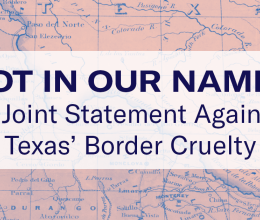
April 22, 2013. Greenville News. By: Clark Brooks. U.S. Sen. Lindsey Graham said Sunday that the surviving Boston bombing suspect should be tried in federal court for his crimes, and also designated a potential enemy combatant so he can be questioned separately and without a lawyer by U.S. intelligence-gathering agencies.
Dzhokhar Tsarnaev, who remained in serious condition Sunday at a Boston hospital, would have all the rights of any U.S. citizen in a federal court trial, Graham said, but a citizen can be an enemy combatant and questioned as such.
“We should be allowed to question him for intelligence-gathering purposes to find out about future attacks and terrorist organizations that may exist that he has knowledge of, and that evidence cannot be used against him in trial. That evidence is used to protect us as a nation,” Graham said on CNN’s “State of the Union.”
“Any time we question him about his guilt or innocence, he’s entitled to his Miranda rights and a lawyer,” Graham said. “But we have the right under our law – I’ve been a military lawyer for 30 years – to gather intelligence from enemy combatants and a citizen can be an enemy combatant.”
Graham, a Seneca Republican, also said “the ball was dropped” in the handling two years ago of the suspect’s older brother, Tamerlan Tsarnaev, who was killed Friday in a shootout with police. Federal law enforcement officials reported Friday that the FBI interviewed Tamerlan Tsarnaev in January 2011 at the request of the Russian government, which suspected he had ties to Chechen terrorists, The New York Times reported.
Three people were killed and more than 180 injured by two separate bombs placed near the finish line of last Monday’s Boston Marathon. The suspects are two ethnic Chechens from southern Russia who had been in the U.S. about 10 years and lived in the Boston area.
A special interrogation team is waiting to question Dzhokhar Tsarnaev, 19, without reading him his rights, using a public safety exception to Miranda reserved for cases of immediate danger, an exception the American Civil Liberties Union said “applies only when there is a continuing threat to public safety” in a statement on its website, adding, “We must not waver from our tried-and-true justice system, even in the most difficult of times.”
Tsarnaev was captured Friday night from a tarp-covered boat in a suburban Boston backyard. He has been suffering from a throat wound and so far has been unable to speak, delaying the interrogation, NBC News reported.
Graham acknowledged that it is too early to know whether Tsarnaev has al-Qaeda connections or can legally be classified as an enemy combatant, but said he believes the potential is there.
“What I am suggesting is that there is ample evidence to suggest that this man was a radical Islamist, and that he and his brother had ties to overseas organizations,” Graham said. “We should reserve the right, after the public safety exemption expires, to look at him as an enemy combatant, continue to collect evidence, and if we find evidence, go to him…without a lawyer present to gather intelligence.”
Sen. Chuck Schumer, D-NY, who appeared on CNN with Graham, said an enemy combatant designation could be challenged in court, and it isn’t needed to get information out of Tsarnaev.
Hina Shamsi, director of the ACLU’s National Security Project, questioned the legality of Graham’s proposal to consider Tsarnaev a potential enemy combatant.
“It sounds like he is asking for an option to be kept open, and my response to that option being kept open is that it would be unconstitutional and unnecessary for a U.S. citizen who carried out these alleged acts on U.S. soil to be militarily detained and interrogated,” Shamsi told GreenvilleOnline.com. Such a policy, she said, “would only lead to the kind of necessary legal challenges and delay that surely Sen. Graham himself would not want.”
Carl Levin, D-Mich., chairman of the Senate Armed Services Committee, said on his website that he knew of no legal basis for designating Tsarnaev an enemy combatant, and that doing so might jeopardize efforts to prosecute him for his alleged crimes.
“I am not aware of any evidence so far that the Boston suspect is part of any organized group, let alone al-Qaeda, the Taliban, or one of their affiliates – the only organizations whose members are subject to detention under the Authorization for Use of Military Force, as it has been consistently interpreted by all three branches of our government,” Levin said. “In the absence of such evidence I know of no legal basis for his detention as an enemy combatant.”
Graham, who also sits on the Armed Services Committee, said that information Tsarnaev revealed under questioning as an enemy combatant would be separate from his criminal trial.
“He’ll get a fair trial,” Graham said. “The public defender assigned to him should vigorously defend this young man because he or she will be helping America. That’s what we do in America. He will get all the rights associated with a federal court trial.
“But most Americans want to find out what he knew, who he’s associated with, does he know about terrorist organizations within or without the country that are trying to hurt us, does he know anything about a future attack? That comes from the law-of-war questioning.”
Graham said the Boston bombings show that “we need to up our game,” pointing to the handling of Tamerlan Tsarnaev, who he said should have been monitored. Either the FBI missed a lot of things involving Tamerlan Tsarnaev, he said, or the laws did not allow them to follow up properly.
“There was a lot to be learned from this guy,” Graham said. “He was on websites talking about killing Americans, he went overseas. He was clearly talking about radical ideas. He was visiting radical areas. And the fact that we could not track him has to be fixed.”
